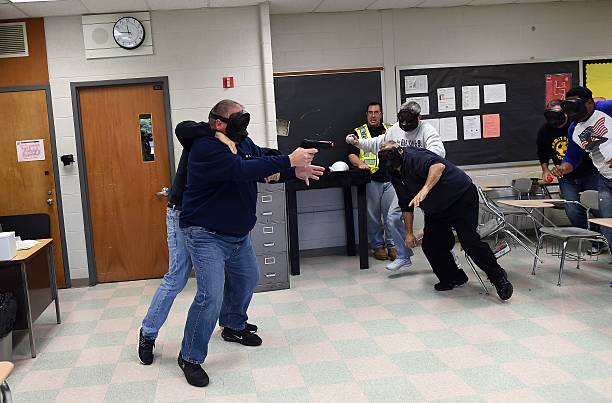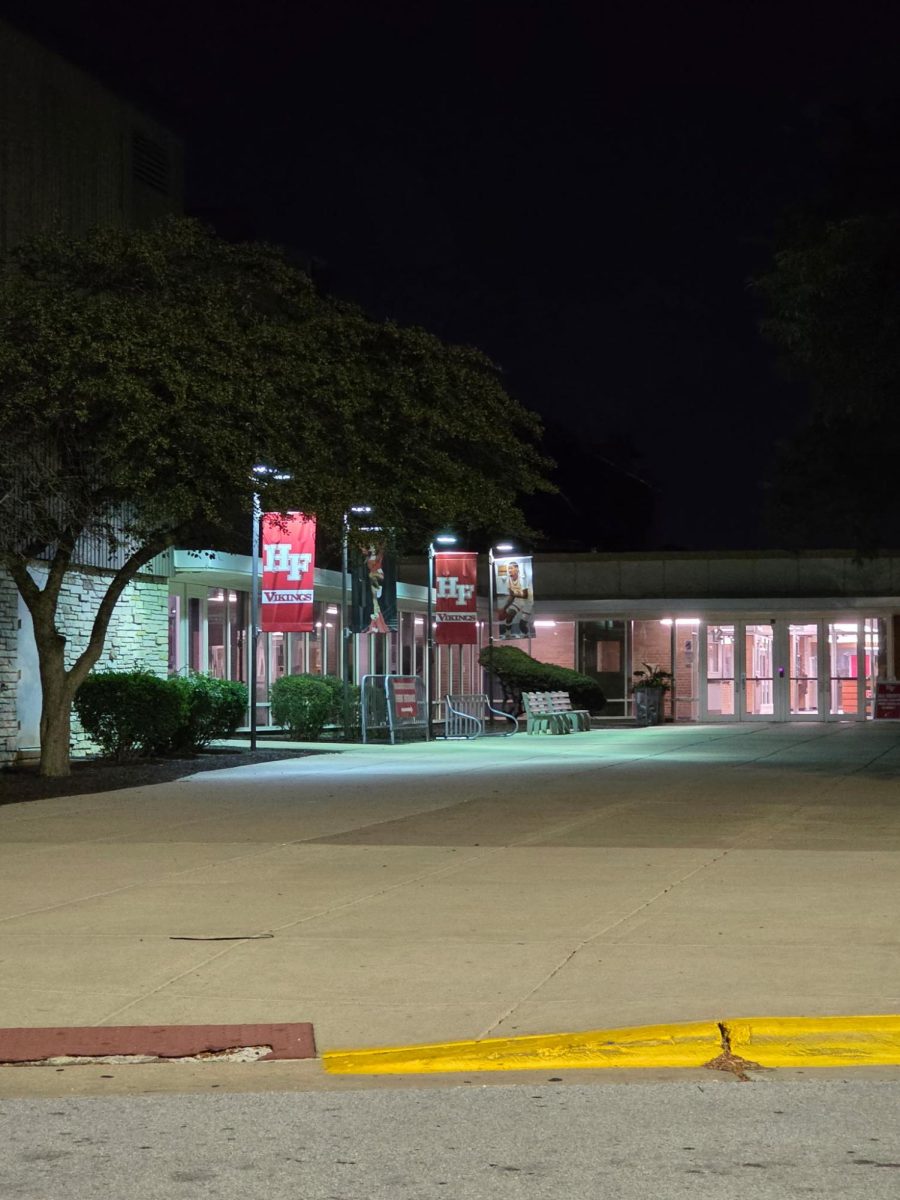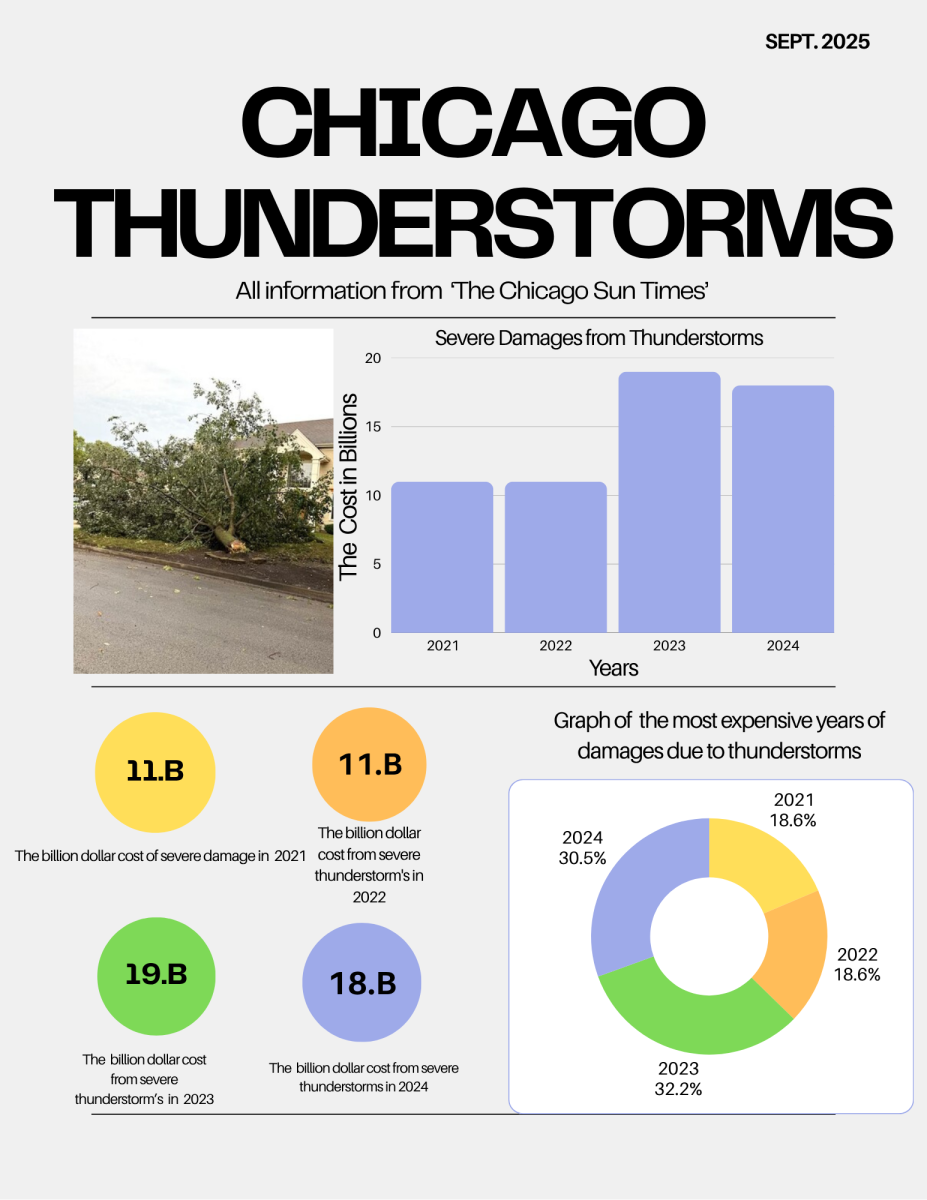Students and teachers at H-F probably know what to do when someone comes on the intercom announcing a code red, but the instructions become a lot more fuzzy when the emergency drill becomes a reality.
According to associate principal Craig Fantin, crisis management and prevention starts way before an actual emergency occurs. Fantin said one of the biggest ways H-F helps to prevent these situations is by “building healthy good relationships with our kids.” This is because whether it’s an adult or student causing or threatening to cause harm, “there’s obviously some trauma, something’s happening in that person’s life for them to get to that point, so hopefully we can get to that before that,” Fantin said.
H-F requires the entirety of its staff at the beginning of each year to undergo ALICE training which–according to the ALICE website, provides “Active Shooter Training & Preparedness Solutions” for schools, workplaces and other communities. ALICE training is based around one’s ability to react to a dangerous situation.
Fantin emphasized the importance of this training largely because protocol in an emergency situation is reactionary, not based on a one-size-fits-all set of procedures, so the entire staff needs to have a deep understanding of what to do in any given scenario. He added that “it could be anything, it doesn’t necessarily have to be a gunman. It could be somebody with a weapon, it could just be somebody on our campus that’s not supposed to be here.”
H-F is very well-equipped when it comes to security, having eight police officers on-campus every day, all armed. The entire village of Flossmoor has two or three on duty at any given time. The Flossmoor police department has maps of the school, and H-F is working to get them integrated into the camera system so that they can see inside the school remotely.
As for what someone in an emergency situation actually needs to do, he has one main word of advice: run away, if you can. “Ultimately, if you can get out and run away from the action as far as possible and feel that you could be safe, that’s what we want our people to do,” Fantin stated. “That’s why it’s very difficult to run a full-on drill for students, because everyone would take off running, which they should.”
Fantin’s general advice is to first understand your surroundings, know how to escape, know how to lockdown and, in a worst-case scenario, fight back against the attacker; find any objects you can find near you and throw it at them.
The “protocol” in an active shooter scenario has changed significantly as more information arises. The FBI, police agencies and SWAT teams do many analyses of active shooters. With each new crisis event they evaluate the mistakes made and what should be done better in the future. “It’s evolved based on the studies that they’ve done and the analysis of all the different active shooters that have happened throughout this country,” Fantin said.
For example, in the past students have been told that they need to hide in a classroom to avoid being seen by a shooter. This has proven to be more harmful than helpful, as shooters with extremely dangerous weapons are able to locate all of the students at the same time and they are still. Shooters generally don’t try to open locked or barricaded doors unless they are searching for a specific person.
When it comes to communication with families, students and faculty about or in an emergency, principal Clinton Alexander said that H-F has “a standard operating procedure when it comes to emergencies.” He continued that, “depending on the scenario, we can leverage email, robo call and text messages to communicate with our stakeholders. We have a crisis plan review every year with our local municipalities and feeder school districts to calibrate procedures.”
H-F has many security measures in place in case of an emergency crisis situation, but ultimately it can never be perfect. This is why protocol changes so much as time goes by and as more information becomes available. Fantin said, “it’s very difficult, the unpredictability of it. So, the best thing that you could do is to have a mindset to be prepared.”









